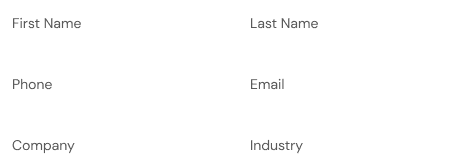
Freelance Work vs. International Employment: Choosing Your Next Remote Job
A lot of people often confuse international employment and remote freelancing simply because they are both done remotely. However, they are actually very different and you should be aware of how and when to opt for either. In the instance of misclassification, an employer or freelancer may not be able to distinguish their rights and responsibilities in their job.
Considering this, it is important to have proper knowledge about the true meaning of being an international employee and a freelance worker. In this article, we will discuss some of the important things you should know.
What is a freelance work?
A person who is doing freelance work is someone who works for different companies but does not have an employer to offer them a permanent job. Freelancing is pretty much running a business offering services to clients. This means that they need to allot time to advertise their services, manage their schedules, and send invoices.
Moreover, they can take on multiple clients and work with them simultaneously. The freedom and flexibility that freelancers enjoy are some of the main reasons why people choose this type of employment instead of working for a single company.
However, they are at risk of not getting any employee benefits and security of tenure. They are self-employed, which means they are responsible for their own taxes, benefits, equipment expenses, and insurance. Also, many freelancers often find themselves in a difficult situation when their client does not pay for the work rendered even if they have their contract.
Freelancers have recently been placed in the spotlight with the Philippine government placing more laws to protect those who are in the industry. In fact, there is a newly approved regulation that protects the rights of freelancers in the Philippines.
What is an international remote work?
In remote work, on the other hand, a person works for a foreign company and can only work for that particular company. International remote employees usually do not have to worry about paying taxes and other expenses because their employment covers them, staying compliant to the employee’s local labor laws. The responsibility of these workers lies in delivering high-quality results for their respective companies.
Aside from that, their salaries are usually standard across the board. International employees work for a single employer, which means they typically enjoy job security and benefits just like a local employee in their country, namely:
- Tax Withholdings
- Social Security Contributions
- Insurance Contributions
- Pension Payments
- Vacation & Holiday Payments
- Mandatory 13th Month Pay
- Maternity and Paternity leave
- Severance Pay

If you want to know more about the Labor Law in the Philippines, check out this guide.
International employment also means that your day-to-day tasks can be monitored regularly. This is because you are an employee of a foreign company, so they regularly monitor your activities to make sure that work gets done on time.
Which of the two is the best option for you?
There are a lot of differences between these two types of remote employment, but here are some key differences to keep in mind.
If you value freedom and flexibility where you can be the "boss" of your own schedule, the freelance work setup might be more applicable to you. You can choose how many tasks you want to take in and for which clients you want to accept work from. In terms of choosing projects, freelancers have the freedom to pick their own projects and clients.
On the other hand, international remote employees have a fixed salary. They also work fewer hours compared to their freelancing counterparts because they do not need to take time marketing themselves or pitching to clients. However, these remote employees are protected by their country’s labor laws and many benefits from their employer that freelancers often lack. Moreover, being employed by a foreign company means that your company can dictate your working hours depending on your position and the time zone in which the company operates.
Overall, freelancers usually enjoy more freedom and flexibility while international employees get the stability of employment and better benefits. You can find work easier as a freelancer because you do not need to wait for an employer to offer you a job and work comes as project-based.
Meanwhile, international employees enjoy job security and protection against tax liabilities by their employers. As international employees, there is an employment contract that serves both parties that clearly stipulates a job description and compensation including benefits. They usually work regular and fixed hours agreed upon in the contract.
Now if you are working remotely and your employer requires you to only work for them and on a fixed set of hours, you are definitely an international employee. In this case, you need to check in and align with your employer for your labor rights and benefits.
What are the risks in misclassifying your remote work setup?
If you want to practice your rights for the two classifications, it is important that your employer is being clear about your position and your working setup.
If you are a freelance worker, you can negotiate and even dictate the scope of work you are capable of rendering, and the duration of service to be included in the contract. Ultimately the employer will be the one to determine the duration of the project.
Meanwhile, being an international employee means that you and your employer must follow the labor code. An example would be in the case of overtime work - according to the Department of Labor, workers need to be paid overtime if they work more than 40 hours a week. This means that if you are working 50 hours a week for your company but you are not being paid the correct amount then this is something you can bring up.

Also, there are several requirements that your employer must comply with when hiring international remote employees. For example, these employees have a salary based on a fixed amount and should not be paid less than the minimum wage in your country. If you feel that you are being underpaid, then it is time to set an appointment with your HR to clarify, check other sources for industry-standard pay, or seek other employment opportunities.
If you are still not sure if your employer is misclassifying you as an international employee or not, seek the advice of professionals who specializes in labor laws and regulations regarding remote work.
How can an Employer of Record help?
According to the Department of Labor, there are specific requirements for hiring international employees such as building an entity in the country which may cost a lot. On the other hand, a company can also partner with outsourcing providers such as Employer of Record companies that can act as the agency that will legally hire their employees in the Philippines on their behalf.
An Employer of Record is a company that works as a local representative of the employee's employer. Through this system, employers can pay their employees through local banks and they will bill them every month.
An Employer of Record company like Remotify is helpful especially if you want to hire international workers online because it makes administration easier. We also offer payroll management, HR services, and labor compliance which are essential for any business. We will also be the ones to pay and manage the employees' taxes and social benefits.
Aside from that, we also offer optional services such as employee sourcing, Cybersecurity training, background checking, HMO management, and laptop procurement.
Conclusion
Now that you know the difference between international employment and freelance, it would be easier for you to determine which setup you prefer as you search for a remote job. If you and your employer are having trouble finding the best ways to comply with the Philippine Labor Law, then Remotify is here to help.
Check out Our Services page to know about how we can be of service or set a call with us here.
Jump straight to a key chapter
Spending Too
Much Time
Onboarding?
your remote hiring in the
Philippines, excellently.
Say Goodbye to High Costs!
Request Your Free Consultation Today andSave a Massive 70% on Your Workforce!

Ready to thrive in a remote-first work environment?


